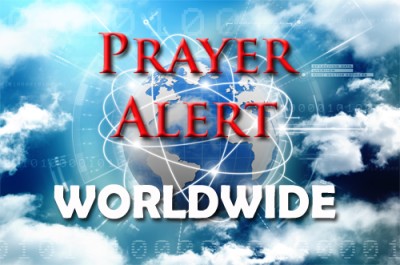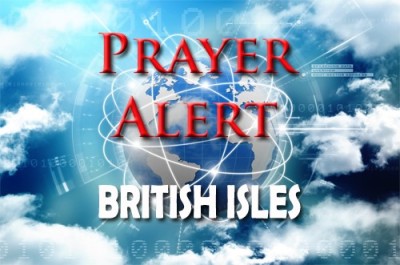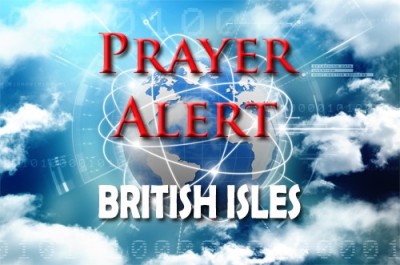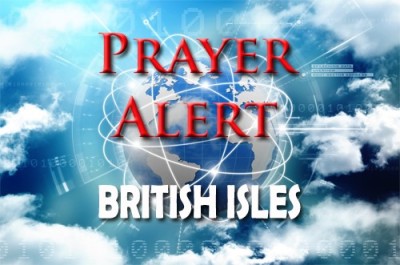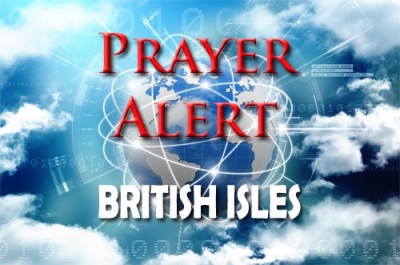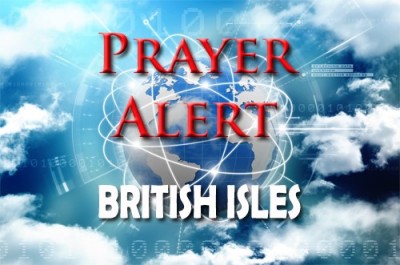President Luiz Inacio Lula da Silva’s recent health scare has raised questions about his political future and Brazil’s left-wing leadership. At 79, Lula has undergone emergency surgery in São Paulo after a fall at home led to a cranial hemorrhage. His health issues, coupled with his central role in negotiating key policies, have cast uncertainty over the future of his minority government, which is grappling with essential reforms in spending cuts and tax policies. There are also concerns over his ability to run for reelection in 2026, with the Workers Party lacking a clear successor. He has said that he would like to see a political ‘renovation’ in the next election, but if his candidacy is required to defeat the far right, then ‘obviously I'll be ready to run’. Analysts believe the party is unprepared for a future without his leadership; the failure to develop new leaders has made it challenging for it to gain traction in recent elections.
Iran: released from death sentence
05 Dec 2024Marziyeh Amirizadeh spent her first 33 years under a restrictive regime that curtailed freedoms following the 1979 revolution. Raised as a Muslim, she experienced a profound spiritual transformation after encountering God in a dream, leading her to embrace Christianity. Despite the severe risks, Marziyeh and her friend Maryam began evangelising in Tehran, distributing Bibles and sharing Jesus' love. Their activities attracted the attention of authorities, and in 2009 they were arrested and sentenced to death by hanging for apostasy and promoting Christianity. Initially confined in an underground dungeon, they endured inhumane conditions, but throughout their imprisonment Marziyeh held on to the promise of Matthew 10:19, which assures believers that the Spirit will provide words in times of persecution. Their unwavering faith and international advocacy eventually led to their release. Her story is a testament to steadfast faith amid persecution.
300 global leaders adopt 'Madrid Commitment'
05 Dec 2024The VI Transatlantic Summit, hosted by the Political Network for Values (PNfV) in Spain, united 300 global leaders from 45 nations to launch the Madrid Commitment. This initiative presents a decade-long action plan defending freedom, family, and the culture of life, emphasising Christian principles and universal values as essential to national well-being. Key proposals include defending human dignity and life from conception to natural death, fostering family stability through policy, and promoting a culture that celebrates life. Leaders also encouraged governments to adopt the Geneva Consensus Declaration, supporting women's health and protecting life, while reaffirming the Universal Declaration of Human Rights. The summit, supported by groups like the Heritage Foundation, reinforced PNfV’s mission to advocate for life, family, and freedom worldwide.
The Terminally Ill Adults (End of Life) Bill passed its second reading in Parliament, with 330 votes in favour and 275 against. Described as a 'Black Friday’, this decision represents a grave shift in Britain’s stance on the sanctity of life, prioritising personal autonomy over protection for the vulnerable. Critics argue the bill endangers the disabled, terminally ill, and impoverished, who may face coercion or feel societal pressure to end their lives. CARE and other opponents emphasise the risks of this legislation. They point to evidence from countries like Canada, where economically disadvantaged individuals are disproportionately affected by assisted suicide laws. While proponents see the bill as progress, opponents like Danny Kruger MP warn that it undermines human value by equating worth with utility. The bill will now move to committee stages, with further debates in the House of Lords. Despite this setback, Christians are called to pray, advocate for the vulnerable, and trust in God’s sovereignty over life and death. See
Keir Starmer has announced a bold 'Plan for Change’, prioritising increased neighbourhood safety, improved NHS services, education reforms, and economic growth. Central to this vision is the pledge to recruit 13,000 additional police officers, police community support officers, and special constables across England and Wales. Starmer emphasised the importance of visible, community-based policing to restore trust and reduce fear. The plan also addresses NHS waiting lists, aiming to improve access to healthcare. Education reforms focus on early childhood development, ensuring children start school prepared to learn. Additionally, Starmer highlighted a commitment to clean energy, aiming to make Britain a green energy superpower by 2030. Addressing broader issues, Starmer pledged improvements in living standards, housing development, and stricter immigration controls. He criticised past governments for 'sticking plaster' politics, vowing lasting change through strategic, measurable goals.
UK business confidence has fallen to its lowest level since the early days of the Covid pandemic, according to the Institute of Directors (IoD). November’s economic confidence index dropped to -65, the lowest since April 2020’s record low of -69. This follows the government's autumn budget, which introduced £40 billion in tax increases, including £25 billion from higher national insurance contributions (NICs) for employers. Business leaders warn these measures will hinder private sector growth, with many firms anticipating reduced investment and workforce cuts. UK hospitality businesses have voiced concerns about closures and reduced investment due to the NIC hikes. IoD chief economist Anna Leach criticised the budget for undermining economic foundations and damaging businesses’ ability to grow. Chancellor Rachel Reeves defended the budget as necessary for stabilising public finances. The IoD hopes upcoming announcements on industrial strategy, infrastructure, and tax reform will boost economic prospects. See
Admiral Sir Tony Radakin, Chief of Defence Staff, has warned of a new, more complex nuclear age. He highlighted the growing threats posed by nuclear proliferation and the erosion of global agreements controlling their use. He cited Russia's provocative actions, including simulated nuclear attacks on NATO countries, as well as China's expanding nuclear arsenal, Iran's nuclear ambitions, and North Korea's advancing ballistic missile program. Radakin described the 'third nuclear age' as marked by multiple, concurrent threats and the absence of robust security frameworks. This contrasts with the Cold War's defined blocs and subsequent disarmament efforts. He emphasised the critical role of the UK’s nuclear deterrent, particularly its continuous-at-sea submarines, in influencing Russia's behavior. While stating that a direct Russian attack on the UK or NATO remains unlikely due to effective deterrence, Radakin urged vigilance and strengthened defense strategies. He called for national resolve in confronting these escalating security challenges. See
UK buys 5m doses of bird flu vaccine
05 Dec 2024The Government has secured over five million doses of a bird flu vaccine to prepare for potential human transmission of the H5N1 virus, despite no current evidence of such spread. The vaccine is part of broader efforts to enhance the nation's pandemic preparedness. Bird flu remains primarily a threat to birds, but certain strains, including H5N1, have been linked to human infections. Symptoms range from flu-like illnesses to more severe complications like conjunctivitis. The vaccine will only be deployed if human transmission begins. Public health minister Andrew Gwynne stressed the government’s commitment to safeguarding public health through proactive measures. Health agencies are actively monitoring avian influenza in humans, birds, and animals, contributing to global understanding and response strategies against the virus.
